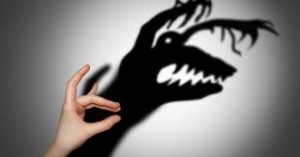 The Fear Paralysis Reflex
The Fear Paralysis Reflex
The Fear Paralysis Reflex is a Primitive Reflex which develops in utero for the survival of the fetus. It creates a fear response from unexplained or threatening events. It’s function is not completely understood but it causes to fetus to temporarily freeze its movements for the purposes of survival.
How does the Fear Paralysis Reflex affect behaviour?
 The Fear Paralysis Reflex is the first reflex to develop in the child. It involves withdrawal away from threat and should be integrated long before birth. Its continued presence will delay integration of the Moro Reflex. If this reflex is not correctly integrated the effects on child behaviour are profound. It is said that to live with the Fear Paralysis Reflex is to see life through a lens of fear. Every new thing that a child approaches, be it learning to read, making friends, playing sports and games is compromised. The child does not have the freedom to safely express itself, as other children do. The child does not lack the intelligence to do these things but is continually forced to deal with heightened fear in the face of new challenges.
The Fear Paralysis Reflex is the first reflex to develop in the child. It involves withdrawal away from threat and should be integrated long before birth. Its continued presence will delay integration of the Moro Reflex. If this reflex is not correctly integrated the effects on child behaviour are profound. It is said that to live with the Fear Paralysis Reflex is to see life through a lens of fear. Every new thing that a child approaches, be it learning to read, making friends, playing sports and games is compromised. The child does not have the freedom to safely express itself, as other children do. The child does not lack the intelligence to do these things but is continually forced to deal with heightened fear in the face of new challenges.
Some of the symptoms of a Retained Fear Paralysis Reflex:
- Shallow, difficult breathing
- Underlying anxiety or negativity
- Insecure, low self-esteem
- Depression/isolation/withdrawal
- Constant feelings of overwhelm
- Extreme shyness, fear in groups
- Excessive fear of embarrassment
- Fear of separation from a loved one, clinging
- Sleep & eating disorders
- Feeling stuck
- Elective mutism
- Low tolerance to stress
- Withdrawal from touch
- Aggressive or controlling behavior, craves attention
- Extreme fear of failure, perfectionism
- Phobias
- Obsessive/Compulsive Disorders
How can Cork Kinesiology help with the Fear Paralysis reflex?
Tony Galvin of Cork Kinesiology is trained in The Child Centre Method – learning and behaviour program. The treatment of Retained Primitive Reflexes is at the heart of The Child Centre method. Please read the article above on the methid and on the relflexes. This will give you a great understanding of your child’s behaviour.

